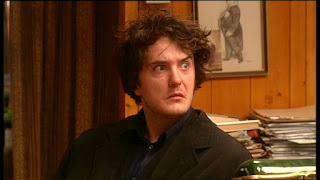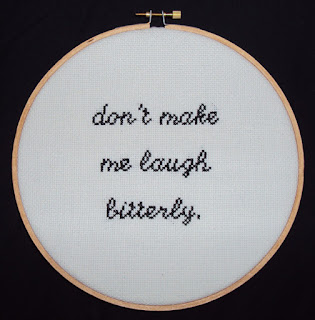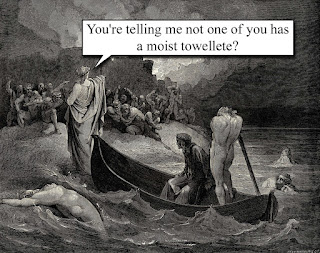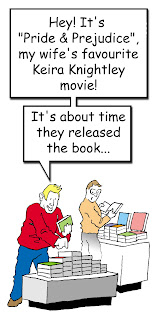Books
have been around in one form or another for millennia. The structure of the
book is perfectly evolved to handle a serious amount of abuse, from dirt, to
rough handling, to fire and even moisture. Of course, books are not impervious
to these types of damage, but they are resistant. One thing they are not
designed to deal with though is stickiness.
In
the course of preparing books for sale, I encounter all kinds of stickiness.
Prime among these are old price tags from former dealers. These run the gamut
from fairly inoffensive removable tags to the kind that absolutely destroy the
book as you peel them off. The worst kind are the electronic security tags that
some shops use and which they think will save their stock from being stolen,
when, in fact, they are countered by the simple expedient of holding a largish
coin over them as you pass through the security gate at the exit. You heard it
here, folks! Perhaps the irremovable nature of these gadgets is some kind of
payback for being so mind-numbingly easy to outwit, who can say?
The
other annoying price tags are the ones that are pre-cut so that they separate
into many sections rather than peeling off in one go. I’m looking at you,
Kinokuniya...
Having
removed the sticker there’s often a tacky patch that is left behind which, is
irritating to the touch and which will transfer gummy smears to the rest of the
book. The best way to deal with this – and indeed most types of tags – is the
simple application of eucalyptus oil using a tissue. Lightly soak the tissue,
wipe the affected area, sponge up any excess, allow to dry. It works like a
charm and, if you have a cold, there’s a bonus side-effect!
The
worst thing about price tags is that they can lift the lacquer on a book’s
cover, and this is becoming more evident with the modern types of paperbacks
that are being produced these days. Lacquer is used to make a book cover extra
shiny; or, if the required effect is a matte one, then the lacquer gives the
wrapper a textured kind of rubbery effect. The problem is that, with so much
lacquer, the sticker adheres to it rather than the cover, and when you peel the
sticker off, a patch of lacquer comes with it. It looks bad and, since the
lacquer helps make the book somewhat waterproof, your new book is now a sponge
waiting to get to work. Eucalyptus oil might work with these situations, but be
careful: those matte lacquers can react badly to the treatment and you can end
up with a blotchy, tacky mess.
One
place I worked at, we used a spray furniture polish to clean books, a product
called “Mr Sheen” (nothing to do with Charlie or Martin). It works a treat, but
a little goes a long way.
A
note of warning: if you use these cleaning methods, use them only on paperbacks,
on the dustwrappers of hardcover books, or on dustwrapper-less hardbacks with
shiny covers. The boards of most hardback books are composed of non-waterproof
substances and they will be effectively destroyed by these treatments.
Something
which is occasionally encountered in books is tape. Some people mistakenly
think that putting tape along the edges of the dustjacket will protect it from
chipping or wearing and this is true – for a microsecond. Sticky tape is a type
of adhesive celluloid and rapidly becomes yellowish and brittle if exposed to
light, or high temperatures. The glue is highly acidic also and reacts badly
with book paper. In short order the tape will flake off and the glue will have
created horrible dark brown marks on your books’ pristine surfaces. Some people
cunningly plastic-wrap their books and are careful to make sure that any tape
they use doesn’t touch any part of the book, attaching only the plastic wrap to
itself. It doesn’t matter: the acidic chemicals in the glue emit vapours that
assault the paper and voila! Horrible
dark brown marks. Repeat after me: tape and books don’t mix,
And
forget about Scotch Tape, so-called “Magic Tape”, too. Not so magic. Not so
much.
Other
types of sticky tend to come in the form of substances that come into contact
with the book while you’re enjoying the contents. These run to gamut from jam
to red wine, and I’ve seen them all in my book-cleaning time. Just remember: a
mildly damp cloth will take care of anything that you smear on the shiny outer
covers of your novel or its dustwrapper. That lacquer is built to take it. If
you spill something onto the pages, that’s a different story; but be quick and
mop with something absorbent and you will probably minimise the devastation.
Speaking
of which: if you wet a book with glossy plates on the inside, you run the risk
of sticking those pages together. Break out the hairdryer and blow them dry on
a light heat: they will probably buckle or ripple slightly, but, if any
moisture remains, they will become glue-y and stinky, which is worse. If they
stick together, any effort to separate them will tear the surface of each plate
and render them useless.
What
else? I once found a jam doughnut in a book that had been flattened and put
back on the shelf for a week. A quick funeral was all that could be done. Some
things – like an erotic text with the pages glued together - are just too
obnoxious to attempt rectifying...
In
the final analysis, it’s best to treat your book in the same way that you treat
your computer: don’t let any sticky, damp, or wet things get close to it. In
this way you avoid that sinking feeling that you get when you spot the
champagne glugging out of the disc drive on your laptop. Been there, done
that...



















